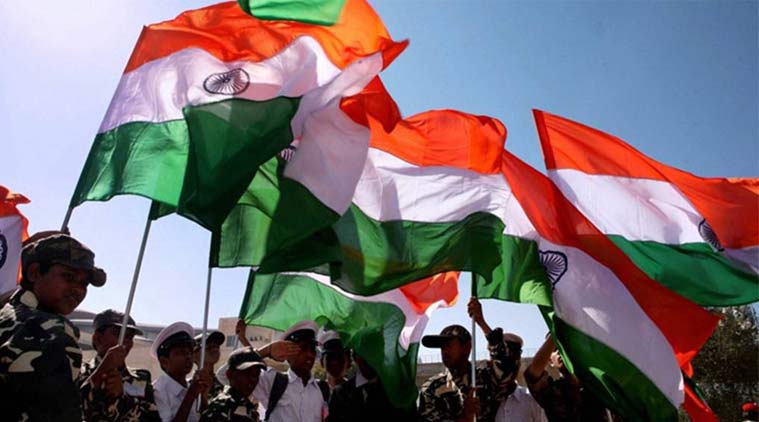Willingness to engage with ideas has to come from intellectuals, not political parties
 India may not have plumbed the depths of illiberal democracy, but there is no denying that the argumentative Indian is becoming docile and demoralised.Recent interventions by Pratap Bhanu Mehta and Gurcharan Das about the problems of Indian liberalism voice a disquiet widely felt in the academy and the media: There seems to be no space left in our public life for engaging with ideas without inviting censorship and threats. These perils drive many intellectuals into silence.
India may not have plumbed the depths of illiberal democracy, but there is no denying that the argumentative Indian is becoming docile and demoralised.Recent interventions by Pratap Bhanu Mehta and Gurcharan Das about the problems of Indian liberalism voice a disquiet widely felt in the academy and the media: There seems to be no space left in our public life for engaging with ideas without inviting censorship and threats. These perils drive many intellectuals into silence.
India may not have plumbed the depths of illiberal democracy, seen in its menacing form in Egypt and its protean form in Turkey, but there is no denying that the argumentative Indian is becoming docile and demoralised. If you will not face bans from the government, you will be trolled on social media. If you will not be charged with sedition by the state, you will be accused of betraying your ideological camp. The condescension, intolerance and elitism of so-called liberals cannot take all the blame for the gradual collapse of a genuine debate on politics, society, religion and development in this country.
The Jawaharlal Nehru University has undoubtedly been through phases in its history when its prevailing discourse was marked by dogmatism. In many social sciences, the education JNU imparted to generations of students was not lightly tinged with ideology. But the university had two qualities that mitigated the ill-effects of intellectual rigidity: One, academic rigour, and two, social inclusiveness. When the state swooped down on Kanhaiya Kumar, Umar Khalid, Shehla Rashid and friends, and forced the somewhat insular campus into the glare of 24X7 national media coverage for a good three months, both of JNU’s hidden strengths came to the fore: It has a diverse social body, and it continues to attract intelligent and intellectually curious young scholars.
The JNU student leadership displayed an impressive preponderance of women, non-upper castes, minorities, and non-Anglophone orators. The “teach-in” nationalism lectures were exemplary for their range of speakers and attendance, and the willingness on all sides to re-examine fundamental assumptions. Faced with an existential crisis, the university courageously returned to the foundations of social and political thought, and tried to understand its own predicament in the context of a history of ideas.
There was something genuinely refreshing and redeeming about the daily gatherings at the campus administrative block, labeled “Freedom Square”, felt by everyone who attended and participated. One experienced there a palpable positive energy that got the protagonists through their protest demonstrations, jail terms and hunger strikes, and helped them cope with the administration’s vindictive disciplinary actions. JNU’s spring of 2016 was a site for tremendous democratic hope, demonstrating that politics devoid of ideas is dead. Political vitality, especially in a democracy, thrives on debate, dissent, and disagreement — elections are not everything.
Political parties are neither the original source nor the ultimate home of political ideas. Rather than search fruitlessly for the non-existent intellectuals of the right, lament the electoral demise and ideological exhaustion of the Congress and the Left parties, or decry the populist character of both the BJP and the Aam Aadmi Party, leftists, liberals and secularists need to stop blaming the political classes. Rather, they need to start taking their own work seriously.
As Mehta correctly argues, ideas need to be treated as ideas and not as yet another form of politics, forever trapped in the exigencies and compromises of the present moment, championed or derided purely on the basis of instrumental and pragmatic motivations. We must recover our ability to recognise and respect certain ideas — like equality, like justice — because they are good ideas, valid in and of themselves, not because they are politically expedient or economically profitable.
The two political ideas that are most prominently on the table today are Hindutva and Ambedkarism. Both are poorly understood as ideologies with real implications for our political processes and institutions. Both have caught our thought leaders by surprise, even though both have been around for close to a century and ought to have been better digested by now. Both have the potential to reconfigure the much-maligned “idea of India” that was put in place by the intellectual labour and political imagination of the founders of the Indian republic. They pull in opposite directions on the key question of social inequality. And both have an unpredictable relationship with politics on the ground — what people believe, how people vote, where people want to see India going in the future.
Hindutva and Ambedkarism in their own ways often make Indian liberals and leftists so uncomfortable that they have failed to produce a robust analysis of either one so far. They are afraid of the former and confused by the latter. Votaries of both these ideologies for their part are not welcoming of “outsiders” who might wish to engage with them without necessarily signing on as believers: Barriers to entry are very high. It’s time for progressive intellectuals to roll up their sleeves, abandon their certitudes and grapple with the ideas urgently confronting them.http://indianexpress.com/article/opinion/columns/indian-liberalism-intellectuals-political-parties-2859578/
Leave a Reply